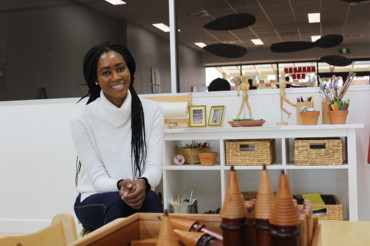Living Costs and Banking
Studying abroad can be expensive. Knowing the average living costs in Australia is an important part of your financial preparation.
Here is some useful information about Australian currency and living expenses, plus helpful tips on budgeting and setting up a bank account.
Australian Currency
The basic unit of Australian currency is the dollar (AUD). There are 100 cents in 1 dollar ($1). Australian currency is the only legal tender (payment of coin) in Australia. There are:
- 5c, 10c, 20c and 50c silver cent coins,
- $1 and $2 gold dollar coins; and
- $5, $10, $20, $50 and $100 plastic notes.
Living Costs
Minimum cost of living
The Department of Home Affairs has financial requirements you must meet in order to receive a student visa for Australia.
Please refer to the step by step Student Visa Subclass 500 application and Document Checklist Tool for details on how to provide the evidence required to cover the costs of your stay, including your travel, study and living expenses.
As of May 2024, the 12-month living costs are;
- For students - AUD$29,710
- For partners coming with you - AUD$10,394
- For a child coming with you - AUD$4,44
All costs are per year in Australian dollars. To convert to your own currency visit www.xe.com
Other living costs
The costs below are an approximate guide only and don't take into account your budget and spending habits.
Accommodation
- Hostels and Guesthouses - $250 to $500 per week
- Shared Rental - $200 to $350 per week
- On campus - $195 to $393 per week
- Homestay - $235 to $475 per week
- Rental - $585 to $716 per week
- Boarding schools - $26,935 to $32,500 a year
Other living expenses
- Groceries - $142 to $223 per week
- Eating out - $35 to $155 for a meal
- Gas, electricity - $20 to $39 per week
- Phone and Internet - $15 to $30 per week
- Public transport - $$1.66 to $4.94 per day
- Car (after purchase) - $308 to $442 per week
- Entertainment - $80 to $150 per week
All costs are in Australian dollars and are estimates only. See the Study in Australia website for more information.
Useful Links
- The Australian Government provides information and guidance on managing your finances. You can read more at www.moneysmart.gov.au
- The Insider Guides Cost of Living Calculator is a useful tool to help estimate your cost of living in Australia.
Banking
Australia has many local and foreign banks as well as other financial institutions. Most banks provide telephone and internet banking, savings accounts, credit cards and debit cards, foreign currency exchange and travellers cheques, loans, transfer of funds and other financial services.
Usual Banking hours
Monday to Thursday: 9.30am - 4.00pm
Friday: 9.30am - 5.00pm
Most branches offer 24-hour Automatic Teller Machines (ATM).
Opening a Bank Account
In Australia, most income including salary or wages and government benefits are paid directly into a bank account. Here are some quick tips on setting up your bank accounts.
- You can set up a bank account before or after you arrive.
- To open an account, you will need to have your Electronic Confirmation of Enrolment (eCoE), passport, Letter of Offer and other forms of identification
- You may also need an Australian Tax File Number (TFN) from the Australian Tax Office
Check if your current bank has a branch in Australia, they may be able to assist you with setting up a new account.
Budgeting
While studying in Australia it is recommended you work out a budget covering costs including clothing, food, accommodation, transport and entertainment. Travel costs and childcare, if applicable, should also be taken into consideration. It’s important to be aware of how much money you spend and where you are spending it. Sticking to a budget will ensure you are aware of where your money is being spent.
Read more about budgeting at www.moneysmart.gov.au
If you experience financial trouble while living in Canberra and studying at CIT, please contact the CIT International for assistance.

 Change language
Change language 简体中文
简体中文 ภาษาไทย
ภาษาไทย الدول العربية
الدول العربية Việt Ngữ
Việt Ngữ Español
Español Bahasa Indonesia
Bahasa Indonesia



